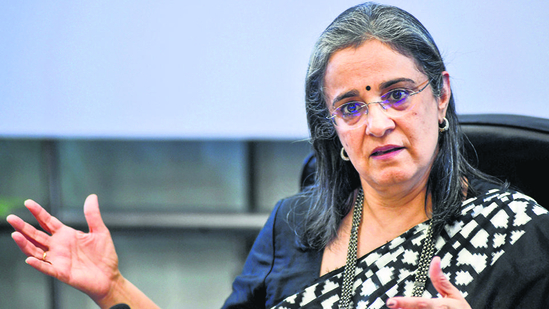Lokpal Clears Ex-SEBI Chief Madhabi Puri Buch of Hindenburg Allegations
On May 28, 2025, the Lokpal, India’s anti-corruption ombudsman, dismissed allegations against former Securities and Exchange Board of India (SEBI) Chairperson Madhabi Puri Buch, granting her a clean chit in a case tied to a controversial Hindenburg Research report. The decision marks a significant development in a saga that had stirred debates about regulatory oversight and corporate governance in India’s financial markets.
Background of the Allegations
In August 2024, Hindenburg Research, a US-based short-seller, published a report alleging that Buch and her husband, Dhaval Buch, held stakes in obscure offshore funds purportedly linked to a money-siphoning scandal involving the Adani Group. The report raised questions about potential conflicts of interest, suggesting that Buch’s investments could have compromised SEBI’s regulatory actions concerning the Adani Group. These claims, amplified by political figures like TMC MP Mahua Moitra, led to complaints filed with the Lokpal, demanding a probe into Buch’s conduct.
The allegations sparked significant controversy, especially as Buch, the first woman to lead SEBI, was nearing the end of her three-year tenure in February 2025. The report also came amid other challenges for Buch, including employee protests over workplace culture and a separate legal battle involving a special court’s order for an FIR against her and other SEBI officials for alleged stock market fraud, which was later stayed by the Bombay High Court.
Lokpal’s Findings
The Lokpal, led by former Supreme Court judge Justice A.M. Khanwilkar, conducted a thorough review of the complaints, including oral hearings involving Buch and the complainants. In its order dated May 28, 2025, the six-member Lokpal bench concluded that the allegations were “untenable, unsubstantiated, and bordering on frivolity.” The body found no verifiable evidence to support claims of corruption, conflict of interest, or quid pro quo. The Lokpal emphasized that the Hindenburg report alone could not serve as the sole basis for initiating an investigation, as the allegations were rooted in “presumptions and assumptions” rather than concrete proof.
The Lokpal also addressed specific claims, such as Buch’s alleged undue gains from ICICI Bank ESOPs and her supposed failure to recuse herself from matters involving companies like M&M and Blackstone Inc. These accusations were dismissed as baseless, with the Lokpal noting that the complaints appeared politically motivated in some instances.
Reactions and Implications
Madhabi Puri Buch and her husband had consistently denied the allegations, calling them “baseless” and an attempt at “character assassination.” In a joint statement following the Hindenburg report, they asserted that their financial dealings were transparent and described the accusations as malicious. The Lokpal’s ruling provides significant relief to Buch, whose tenure at SEBI was marked by notable reforms, including faster equity settlements, enhanced disclosures for foreign portfolio investors, and increased mutual fund penetration through affordable SIPs.
The decision has also drawn attention to Hindenburg Research’s credibility, especially as the firm reportedly shut down operations amid controversies in the US. The Lokpal’s order criticized complainants for sensationalizing the issue without substantiating their claims, a sentiment echoed in posts on X, where users described the Hindenburg report as an “international smear campaign.”
Broader Context
This episode underscores the challenges faced by regulatory bodies in navigating high-stakes corporate disputes and public scrutiny. Buch’s tenure, while transformative, was not without turbulence, as evidenced by the Hindenburg allegations and the subsequent legal and political fallout. The Lokpal’s ruling may help restore confidence in SEBI’s leadership, but it also highlights the need for robust mechanisms to address conflicts of interest in financial regulation.
As India’s capital markets continue to grow, the role of SEBI remains critical in ensuring transparency and investor protection. The resolution of this case could prompt discussions on strengthening regulatory frameworks and safeguarding institutions from speculative attacks.
Conclusion
The Lokpal’s clean chit to Madhabi Puri Buch closes a contentious chapter in her career, affirming her integrity in the face of serious allegations. While the Hindenburg report stirred significant debate, the lack of evidence has shifted the narrative, allowing Buch to move forward. For investors and market observers, this development reinforces the importance of evidence-based scrutiny in corporate governance.
Sources: Hindustan Times, The Financial Express, The Shillong Times, Times of India, Business Today, India Today, Deccan Herald, Telegraph India

